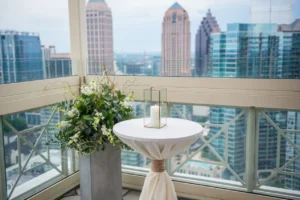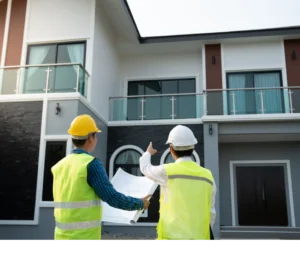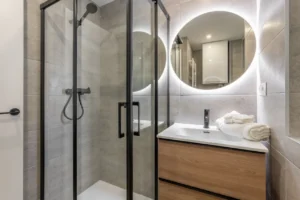Will Cracking Down on Airbnb Help Ease the Housing Crisis?
What’s happening
Travelers looking for a place to stay in New York City may find they have far fewer options thanks to strict new rules that are designed to crack down on platforms like Airbnb and went into effect in the past week.
 As of last Tuesday, anyone seeking to offer up their home for fewer than 30 days will have to register with the city. Only homes that are also occupied by the owner while being rented and that limit guests to two at a time and allow visitors to access the entire residence will be approved. The new rules, which Airbnb called a “de facto ban” on their business, already appear to be having a dramatic effect. According to one estimate, the number of available Airbnbs in New York dropped from 22,000 in August to less than 7,000 by last week.
As of last Tuesday, anyone seeking to offer up their home for fewer than 30 days will have to register with the city. Only homes that are also occupied by the owner while being rented and that limit guests to two at a time and allow visitors to access the entire residence will be approved. The new rules, which Airbnb called a “de facto ban” on their business, already appear to be having a dramatic effect. According to one estimate, the number of available Airbnbs in New York dropped from 22,000 in August to less than 7,000 by last week.
Short-term rentals — which allow visitors to stay in part or all of a private home rather than a hotel — have exploded over the past decade, driven by Airbnb and similar sites like Vrbo. Airbnb estimates that it currently has more than 7 million active listings worldwide and has brought in more than $180 billion to hosts since it was founded 15 years ago.
All that popularity, though, has been accompanied by mounting complaints about rising prices, unexpected fees and bad behavior by hosts and guests alike. But the main reason New York and a long list of other cities — in the U.S. and abroad, from Atlanta to Florence — have targeted short-term rentals is the belief that they are making the housing crisis even worse.
Why there’s debate
Advocates for tough restrictions on short-term rentals say most Airbnb listings are effectively homes that have been subtracted from the local housing market, which reduces the total supply and has helped push costs to historically unaffordable levels. While it’s hard to separate the effects of Airbnbs from all of the other forces affecting the housing market, some research does suggest that an increase in short-term rentals in an area correlates with higher housing costs. Airbnb’s critics argue that strictly limiting short-term rentals will mean more homes are available to locals to rent or buy at more reasonable prices.
But others say platforms like Airbnb are nothing more than a scapegoat for the real reason that housing costs are so extreme: the fact that the country simply hasn’t built enough homes to meet its housing needs over the past several decades. They argue that short-term rentals represent a tiny share of the housing supply — which includes more than 140 million housing units in the U.S. — and even eliminating them entirely would barely put a dent in the housing shortage.
A third group makes the case that some restrictions are warranted to prevent large companies or rich outside investors from buying up big chunks of the housing supply for short-term rentals. But they caution against overly aggressive rules that could force individual homeowners to lose out on much-needed income and discourage tourism that many local economies rely on.
What’s next
One of the biggest remaining questions about new rules in New York and elsewhere is how effectively they’ll be enforced. Cities like Los Angeles and San Diego have struggled to rein in short-term rentals, either because of loopholes in the laws they’ve passed or lack of resources to keep hosts in check.
Perspectives
Airbnbs make the housing crisis even more severe
“When you take units off the market and rent them to tourists, one consequence is that it leads to more people fighting over fewer units. And that leads to higher rents.” — Peter Dreier, Occidental College urban policy professor, to Los Angeles Times
Short-term rentals have a tiny effect on housing supply
“Even a complete collapse of Airbnb’s business would not fix America’s housing market. There are lots of things contributing to out-of-control housing prices in the U.S., and short-term rentals are only just one tiny part.” — Rani Molla, Vox
Paying Too Much For Insurance?
Get a FREE quote to insure your rental properties for less.
The only thing that will actually solve the housing crisis is building more homes
“Part of the solution to housing scarcity involves figuring out how to deal with an array of newer real estate investment types. But another part of the solution — and arguably the biggest part — is also figuring out how to simply build more homes.” — Jim Dalrymple II, Deseret News
Crack down on big-time investors, but leave regular people alone
“Leave alone the ordinary folk who try to make a few extra bucks when they go out of town for a few weeks a year. Go after those who create de facto illegal hotel rooms.” — Editorial, Daily News
Don’t ban Airbnbs, tax them
“Regulations are not the most efficient solution. Taxing short-term rentals at a higher rate … and using the funds for public housing projects would be better than regulations, which are costly to enforce and full of loopholes.” — Caroline Freund, dean of the UC San Diego School of Global Policy and Strategy, to San Diego Union-Tribune
Beyond their effect on prices, short-term rentals have spoiled quality of life in many places
“The problem isn’t that some homeowners are listing their property for rent; rather, entire neighborhoods … are becoming unrecognizable because many of the homes are no longer owned by community members.” — Saul Anuzis, Tennessean
Cities will also suffer if they make it impossible for travelers to find a place to stay
“Lawmakers must find a delicate balance between ensuring there are indeed enough places for lodging while also limiting the growth of short-term rental units in order to prevent them from inflating housing costs.”— Editorial, Boston Globe
Source: yahoo!news













 Accessibility
Accessibility